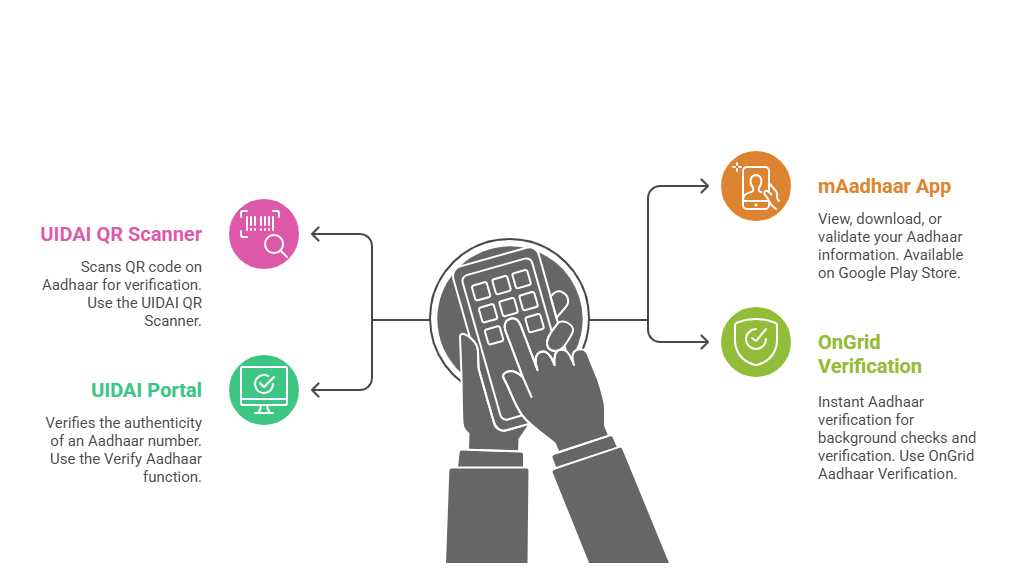Table of Contents
ToggleThere are varying ways in which background verifications (BGV) are perceived by people, but they are globally recognized as an important function in a civilized society and an economy where people can trust others. Their criticality increases in countries with higher trust deficit, with employers and service providers being extra diligent at the time of hiring or while offering a service. The trend to conduct Employee Background Verification (BGV) during the hiring process in India is rapidly increasing, and is moving beyond the formal economy. Employers are more conscious about the people they bring onboard, as they see a high degree of correlation between the values and personal traits of people they hire, and the business growth. Even a semblance of a CV fraud is becoming a strict no-no. The below sections are a summary of emerging trends in the Employee BGV industry in India.
Section I. Newer domains, evolving motivations
As more people from the unorganized sector join the formal economy, the landscape of employee BGV is fast evolving with adoption across sectors (eg. e-Commerce, Logistics, Retail, Transportation, Staffing, Manufacturing, Auto, Hospitality, Healthcare, Education), and not just being limited to a few sectors where BGV had already become a norm (eg. IT/ITES, Banking, Finance, Insurance). The cost barrier to BGV is diminishing as players now offer low-cost BGV options (for as little as INR 100), thus allowing employers to conduct BGV for blue-collar and grey-collar professionals as well. Technology has enabled BGV players to offer low-cost solutions that are more effective than costly manual checks.
Start-ups adopting BGV is a huge testimony to the fact that they want the people aspect correct from day one, before sub-optimal HR practices creep in. Employers working with contractors on third-party payrolls are taking the ownership of verifying the contractors, as their brand is being represented, and the staffing provider has little incentive to get the background verification done in a thorough manner. Employee fraud on CV remains a key pain point in the talent acquisition process, and that’s the prime motivator for employers to partner with BGV platforms, in order to mitigate their risks, and achieve a workplace environment of trust, safety and accountability. Catching ID frauds and safety of women employees and customers are increasingly becoming an area of focus for many employers as well.
Section II. Trends in “Checks Conducted”
Employee BGV means a combination of multiple checks (from a list of 10-12 checks). While there are variations from one employer to another, in the white-collar segment on a large scale sample, the most common combination of checks is:
- Identity (Aadhaar, PAN card, Voter ID, etc.). Aadhaar is increasingly being used due to the robust and non-duplicate nature of the same.
- Court record verification
- Prior employment record check
- Highest education record check
- Professional reference checks (by managers from previous employers). This check is increasingly being adopted to know about a candidate’s motivators, leadership qualities, team-skills, tenacity and other values that drive his/her day-to-day attitude.
In the blue-collar and grey-collar segment, the most common combination of checks is:
- Identity (Aadhaar, PAN card, Voter ID, etc.). Companies are also doing Aadhaar biometric verification to avoid identity frauds, wherein a small percentage of employees with fraudulent intent bring somebody else’s ID with their face photo forged on it.
- Court record verification
- Address verification: This has two options – current address or permanent address. Employers generally choose current address, but some have a policy to verify both. This is increasingly being preferred by physical means (where a verifier visits the house with an “app” that can capture the photo of the house, and tag the lat/long, along with capture of other fields), as domestic migration (intra-state and inter-state) continues to be on a rise.
- Police verification via law firm (and not via State department)
The primary reasons behind the popularity of these checks are (i) the efficacy and effectiveness of these checks in catching the “red-flags“, and (ii) a high return on investment in setting up and running a BGV program.
Section III. Trends in Checks Not Conducted”
Due to the intrusive nature, most employers are moving away from checks such as drug tests (which require bodily samples) and social media checks. Supreme Court’s landmark privacy decision has also led to employers being wary about drug tests, and discrimination based on social media discourse, beliefs, and preferences.
Police verification done through the Government department is also on a downfall, as the processes are largely manual with high degree of variations from one jurisdiction to another (even at a police station level), and the need for employee’s physical availability in some jurisdictions. Police verification also results in a Police Clearance Certificate (PCC) in very few cases, and in most cases, it stops at the acknowledgment stage. Some employers have started the process of asking the employees to get a PCC directly, rather than being involved and/or asking a BGV partner to facilitate the same. Some senior employees from the white-collar segment also find the physical address checks intrusive, and employers are taking calls on not conducting address verifications for them. Court record checks are being preferred over global database checks.
These trends should help employers decide on the checks they should conduct, and optimize their BGV program by taking “too-much” vs. “too-little” decisions.
Section IV. Shift from “buffet” to “a la carte”
The “buffet” model of packaged checks (and hence packaged pricing) is being replaced by the “a la carte” model. Employers do not prefer to pay for checks that are not conducted or completed. To give a simple example, a fresher hired may not have a prior employment record, and hence is a redundant check within a package. An employee may resign immediately after joining, with a check not completed. In such a case, employers are not comfortable paying for the “effort” made by the BGV partner. Employers are looking for flexibility to be able to “cancel” or “close” the check at any point of time in the interim period after making a request.
There is no Government or regulatory body which prescribes which background checks are to be done, or the ones not to be done. It’s a decision that employers need to make by considering the pros and cons of each check, understanding the methodologies adopted by their BGV partner in order to conduct these checks, and the cost, effort and time associated with the same.
Section V. Trends in Digital Approach Adoption
BGV processes have been simplified and made digital by few companies, wherein they like to make the process as paperless as possible, and also reduce the HR team’s effort of collection of data, documents, consent, and then requesting of checks. The emerging trends are:
- “BGV platform” approach as opposed to a “BGV as a service” approach. Employers are increasingly adopting Trust / BGV platforms, and inviting their employees to sign-up on these platforms in the process of conducting BGV. These platforms provide a rich feature-set, including on-boarding, document collection, digital staff-file management for compliance and audits, dashboards, reports, user management, data analytics, etc.
- BGV platform integrations with the employer’s human resource management systems(HRMS). Modern age BGV platforms provide API’s that are integrated with HRMS systems for onboarding, requesting of checks, call-backs on completion of checks, and fetching the results/reports into their HRMS.
- Self-registration by candidates on a BGV partner or employer platform, as opposed to HR collecting documents, BGV form, consent, etc. The self-registration modules allow employees to get an invite URL, and sign-up directly to provide information, upload their documents and provide consent for BGV on the platform itself.
- More employers now appreciate the importance of direct and willful consent (authorization to conduct BGV with a well-defined purpose covering data storage, security, data sharing prohibitions, etc.) provided by the employee to their BGV partner (on the platform), and therefore remaining compliant to data privacy and security regulations.
- Employers are looking for rich dashboards, real-time reports, and the ability to view a “single employee record” at one place with verified data, documents, reports and references.
Section VI. Future is trust platforms
India stack (Aadhaar, digital locker, eSign, etc.) will play a large role in disrupting background verifications and other HR processes as well. The adoption of trust platforms will increase, leading to reduced turn-around-time (TAT) to almost-zero, and BGV costs by almost 50-80%. Education and Employment verifications will become redundant as education institutions and employers start “issuing” digitally signed documents, which will be shared by the candidate (using electronic consent) with employers and service providers. Similar concepts will become popular in other countries also. It will become increasingly important for employers to work with the right BGV platforms who can help them evolve to this future, wherein all participating employers leverage the benefits of a network effect on the trust platform. The future would allow employees (especially from the blue-collar and grey-collar segment) to let employers (and service providers) access their portable digital records (data, documents, prior verification reports, references, testimonials) instantly from trust platforms (and/or into their integrated HRM systems) with their consent, and get access to not just jobs, but other services such as loans, micro-insurance products, house on rent, etc. as well. The continued participation of people on a trust platform would depend on the benefits they can derive from the same, the convenience of paperless and presence-less processes, their trust in data security and privacy standards of the platform, reduction in hassle while joining an organization, and getting access to more opportunities and achieving upward mobility.
To know more about BGV book a demo or write to partner@ongrid.in.
FAQs
1. Why is Employee Background Verification (BGV) becoming more common in India?
The rise in trust deficit and increasing incidents of CV fraud have prompted employers across sectors to adopt BGV as a key step in the hiring process, even beyond the formal economy.
2. Which sectors are increasingly adopting background verification?
Sectors like e-Commerce, Logistics, Retail, Transportation, Staffing, Manufacturing, Auto, Hospitality, Healthcare, and Education are now actively conducting BGV, beyond traditional adopters like IT, BFSI, and Telecom.
3. What are the most common checks conducted in BGV?
For white-collar employees: Aadhaar or PAN identity checks, court record verification, education and employment verification, and professional reference checks. For blue/grey-collar: Aadhaar biometric ID checks, court and address verification, and police checks via law firms.
4. Are background verifications mandatory in India?
There’s no government mandate for BGV. Employers decide based on their risk tolerance, industry standards, and internal policies.
5. How are digital platforms changing the BGV process?
Modern BGV platforms allow end-to-end digital onboarding, document collection, consent management, API integration with HRMS, real-time dashboards, and candidate self-registration—making the process paperless and faster.






Leave a Reply